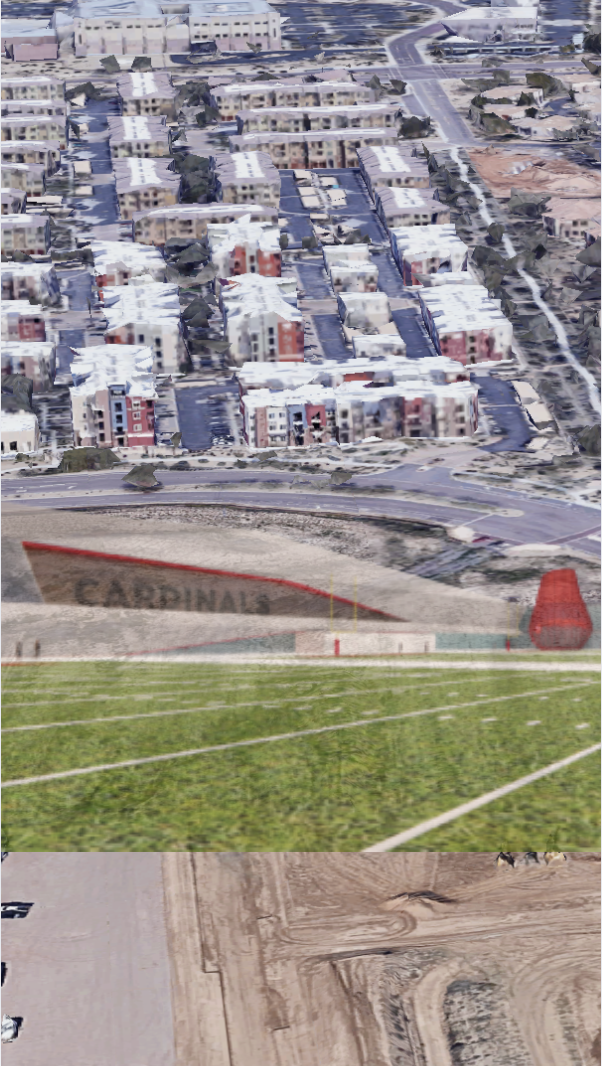India’s Smart Cities Mission, running from 2015 to 2025, involves US$20+ billion in funding for 100 cities, delivering projects in smart water, transport, and governance. Thousands of initiatives are underway, including sensor-based safety systems. For investors, this mission introduces scalable opportunities in infrastructure-backed wealth preservation. Tax incentives, including exemptions for specific public–private partnerships, make entry more favorable. With privacy policies evolving, data rights remain under active debate. The program’s wide scope positions Indian urban real estate as an enduring value anchor tied to sustainability.

Tempe and Mesa are at the forefront of smart-city transformation, leveraging public-private partnerships to advance sustainable mobility, water management, and digital infrastructure. Both cities have adopted aggressive green building codes and have implemented solar incentive programs for residential and commercial assets. Wealth advisors highlight the ESG credentials and lower operating costs for sustainable properties in these locales. State and local tax credits for solar and energy-efficiency retrofits remain available, enhancing investment returns. Regulatory priorities include traffic congestion mitigation, affordable housing, and infrastructure resilience, which are critical for long-term economic stability. These efforts align with investor demand for future-proof, climate-resilient real estate holdings.
Prescott and Sedona continue to show resilient pricing power, with median home values at $645,000 in Prescott and $850,000 in Sedona as of mid-2025, supported by strong in-migration of remote professionals and retirees. Both cities are increasingly recognized for quality-of-life amenities and environmental stewardship, important for legacy planning and ESG-aligned portfolios. Arizona’s transfer tax exemption for most residential sales remains in effect, supporting transactional efficiency for high-value properties. Local regulatory updates emphasize wildfire risk reduction and water resource management, directly affecting underwriting and future insurability. Ongoing investments in renewable energy and eco-tourism infrastructure reinforce long-term value stability.
Tucson’s rental and multi-family sectors are experiencing record-low vacancy rates below 4%, with effective rents up 8% over the past 12 months. The city’s ongoing downtown revitalization has attracted both institutional investors and small-scale landlords, supported by strong job gains in education, healthcare, and logistics. Wealth management professionals see Tucson as a source of reliable cash flow and inflation hedging. Arizona’s income tax reform and Tucson’s local property tax credits for qualifying improvements offer meaningful savings. Regulatory focus is on affordable housing initiatives and adaptive reuse of older stock, supporting long-term urban renewal. Investments in transit, broadband, and water infrastructure contribute to both resilience and ESG appeal for future-minded owners.
Prescott Lakes, developed by Dorn Homes and The Wellington Group, is experiencing renewed interest amid climate migration trends, with home sales up 7% in Q2 2025 (ARMLS). Prescott’s mild climate and proactive fire-wise building requirements make it attractive for buyers seeking portfolio diversification outside the Valley. Yavapai County’s property tax rates and Arizona’s capital gains exemptions for primary residences benefit long-term holders. Prescott’s council has approved additional water allocations for future phases, signaling confidence in sustained growth. Dorn Homes’ green building practices in Prescott Lakes, such as advanced insulation and xeriscaping, contribute to the area’s reputation for value stability and environmental stewardship.
Casa Grande’s “The Crossroads” masterplanned community, spearheaded by Walton Global and Lennar, aligns with the city’s manufacturing growth—highlighted by Lucid Motors’ and Nikola’s plants. Over 3,500 new residential units are planned, with completion staged through 2028. The integration of residential and light industrial zoning is intended to support both workforce housing and employment growth, a model attracting interest from institutional investors seeking long-term, inflation-hedged returns. Pinal County’s property tax regime remains competitive, and Casa Grande’s council has enacted forward-looking water management ordinances. Walton Global, with global operations, brings capital markets expertise to the region, having delivered several large-scale projects in Texas and Alberta.
The Rocking K masterplanned community in southeast Tucson, led by Diamond Ventures, recently broke ground on Phase II, targeting 4,000 new homes and introducing national builders such as Richmond American and Lennar. The project is expected to create over 1,200 permanent jobs and $500 million in regional economic impact upon full build-out (Arizona Commerce Authority, 2025). Wealth management professionals note the area’s favorable capital gains treatment compared to California, and the city’s property tax environment supports long-term investment. Tucson’s updated Unified Development Code ensures high sustainability standards for water use and transportation. Diamond Ventures has also developed University Village Tucson and Civano, reflecting expertise in mixed-use and green building practices.
Anthem, developed by Del Webb (a PulteGroup company), continues to outperform in the age-qualified masterplanned segment, with resale homes experiencing only a 2% average annual price volatility over the last five years (CoreLogic, 2025). The community has 12,000+ homes, extensive club amenities, and robust resident engagement, appealing to wealth management strategies emphasizing stability and low-turnover assets. Arizona’s senior property valuation freeze further enhances tax efficiency for eligible owners. Anthem’s governance, via a consolidated community council, ensures regulatory compliance and reserves funding for capital improvements, supporting long-term value. Del Webb’s portfolio also includes Sun City and Sun City West, underscoring its influence in the senior living sector.



 Arizona Cardinals’ $136 Million “Headquarters Alley” Project: How a 217-Acre Deal Will Redefine North Phoenix by 2028
Arizona Cardinals’ $136 Million “Headquarters Alley” Project: How a 217-Acre Deal Will Redefine North Phoenix by 2028 Public Safety as an Asset Class: The New Scottsdale AdvantageIn today’s Smart City economy, safety isn’t simply about peace of mind—it’s becoming a measurable, marketable asset class. Scottsdale is proving that public safety can be engineered into the fabric of
Public Safety as an Asset Class: The New Scottsdale AdvantageIn today’s Smart City economy, safety isn’t simply about peace of mind—it’s becoming a measurable, marketable asset class. Scottsdale is proving that public safety can be engineered into the fabric of
 Phoenix Just Became Ground Zero for the AI Revolution: Nvidia’s Blackwell Chips Now Built in ArizonaIn the heart of the Phoenix metropolitan area, a seismic shift is underway. The global race for artificial intelligence (AI) supremacy has landed right here in the Valley, as Taiwan Semiconductor
Phoenix Just Became Ground Zero for the AI Revolution: Nvidia’s Blackwell Chips Now Built in ArizonaIn the heart of the Phoenix metropolitan area, a seismic shift is underway. The global race for artificial intelligence (AI) supremacy has landed right here in the Valley, as Taiwan Semiconductor Nice to meet you! I’m Katrina Golikova, and I believe you landed here for a reason.
I help my clients to reach their real estate goals through thriving creative solutions and love to share my knowledge.

